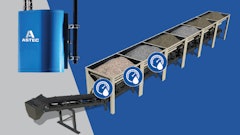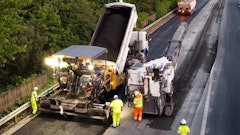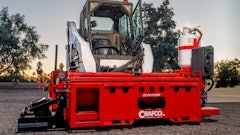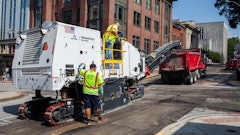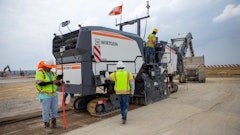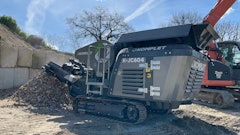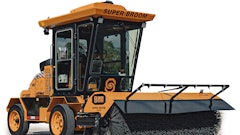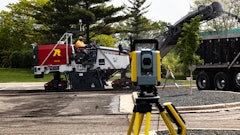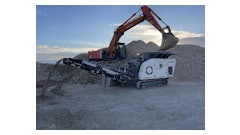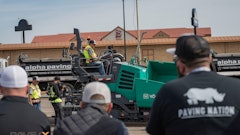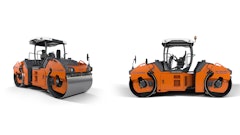
The asphalt paving industry serves the transportation needs of the general public, and the overall economic health of our country. Good roads facilitate the transportation of goods and keep people moving in their everyday lives.
To do this effectively, the road building industry needs to continually stay on the forefront of equipment innovations and construction techniques that will help them build long-lasting infrastructure for their communities.
Innovations in the construction industry happen very quickly. Adoption of these trends however, does not. Contractors’ investment in new technologies begins with understanding the trends in the market. Whether additional investment helps efficiency gains or meeting job specifications, contractors need to keep current with market trends. Contractors that stay current with market trends will develop both a competitive edge and realize efficiency gains lowering costs and becoming more profitable.
The Latest in Paving Technology
Many contractors may think that not much has changed with laying a good asphalt mat, but machine technology is evolving to help the industry produce the best quality product with the dwindling labor resources we have available.
Paver-mounted thermal profiling (PMTP) is sensor technology mounted on top of a paver that measures the asphalt surface temperature profiles behind a paver at full paving width to indicate potential for temperature segregation.
The temperature sensors used by PMTP is a scanning infrared sensor mounted high up on a paver. The temperature profiles are normally divided in 12 inches by 12 inches grids, where an average surface temperature is reported within each grid.
Normally, every 164 ft section of full-width temperature profiles is analyzed to determine the levels of temperature segregation. Example methods are the US AASHTO PP80 standard (no/medium/severe segregation) and an improved Thermal Segregation Index (TSI) method developed by the Minnesota Department of Transportation (MNDOT) and The Transtec Group’s Veta team. Thermal profiling today can incorporate the temperature of the road before paving, the speed and direction of wind, humidity and other factors.
Compaction Technology
Both soil and asphalt compaction are essential to a well-performing and long-lasting road structure. While many contractors may think soil compaction has little impact on the end result of a job, the opposite could not be more true; if proper soil compaction is not achieved initially, it can lead to catastrophic issues for the entire success of the project down the road.
In terms of asphalt compaction, the same can be said. Under compaction will most likely result in inadequate densities, which could potentially result in fines or rework, depending on what the job specification requires while over-compaction often results in breaking the aggregate which would ultimately lead to premature failure.
Manufacturers have been working to take the guesswork out of compaction for years through technology.
Intelligent Compaction (IC) is one such technology with many different facets that has gained attention in the asphalt compaction industry.
According to the Federal Highway Administration (FHWA), IC refers to “an improved compaction process using rollers equipped with an integrated measurement system that consists of a highly accurate GPS, accelerometers, onboard computer reporting system, and infrared thermometers for hot mix asphalt feedback control. By integrating measurement, documentation, and control systems, the use of IC rollers allows for real-time monitoring and corrections in the compaction process.
The benefits of intelligent compaction are:
- Improved material stiffness or density
- Increased productivity
- Reduction of highway repair cost
- Continuous record of material stiffness values
- Identification of non-compactable areas
- Improved depth of compaction
- Lower operating cost
BOMAG Americas, Inc. is one of the companies that promotes the IC approach. BOMAG calls its IC system “Asphalt Manager.” The company focuses on creating more efficient machines so contractors can focus on getting the job done. The company has developed the following five soil and asphalt compaction technology tools to help with efficiency and improved quality:
ECONOMIZER
The patented BOMAG ECONOMIZER continuously shows the operator the degree of compaction, avoiding unnecessary passes, and saving time and money and reducing machine wear and tear on every job.
VARIOCONTROL
BOMAG has revolutionized soil compaction with VARIOCONTROL. The drum vibrates linearly instead of in a circular path and amplitude can be adjusted manually or automatically to protect from damage to structures.
ASPHALT MANAGER 2
ASPHALT MANAGER 2 offers the ultimate flexibility in compaction technology. The operator simply chooses the layer thickness to be compacted and ASPHALT MANAGER does the rest, avoiding over compaction and providing infinitely variable amplitudes.
TERRAMETER
The TERRAMETER system provides the technology to allow single drum rollers to become rolling pressure plates, ensuring the proper compaction in earthwork every time.
BOMAP
The NEW BOMAP system provides GPS mapping technology on Android devices to document real-time roller passes for machines from any manufacturer. Adding a BOMAG antenna provides even more precise GPS positioning BOMAP ensures full compaction of every site.
Integrating Technologies for Better Results
Both the asphalt paver and rollers need to work together to ensure the best possible results are met. Both thermal profiling and IC technologies mentioned above have grown, and they can be merged to provide a complete picture – from the temperature of the mix that arrives, to cooling windows, to the mat left behind the paver and eventually the compaction processes that follow.
PMTP is often used in combination with IC to improve asphalt paving quality. The real gains can be made when IC and thermal profiling are tied together, so the compactor operator knows what is happening with the paver and the paver operator knows what is happening with the asphalt compactor.
The Future of Work
Technology can only do so much however, and it is up to the operators to use it properly to get the most out of these innovations. End users need to understand that these technologies can make their jobs easier and more productive. This can only be achieved by continuous training, educating and consulting with contractors and end users and manufacturers like BOMAG are working hard to ensure this is done.
They are working closely with their dealers, end users and universities to properly train them on how to best utilize their technology. Furthermore, manufacturers are taking advantage of industry’s show like CONEXPO and BAUMA to showcase their soil and asphalt compaction technologies among others.
These challenges will only continue to accelerate as regulations change and machines evolve.
Addressing climate change and sustainability are key issues for many construction machine manufacturers as they prepare to meet future demands contractors will see placed on our industry. Manufacturers are looking at new power systems, like electric drives and alternative fuels and power systems, which are an increasingly important area for development in the construction machinery sector.
No matter what the future of the road building industry holds, manufacturers will continue to drive innovations that help make the job of the end user easier and more profitable. They will continue to focus on technologies that increase operator comfort, safety and productivity, driving interest in an industry looking to attract the younger generation through their efforts.








